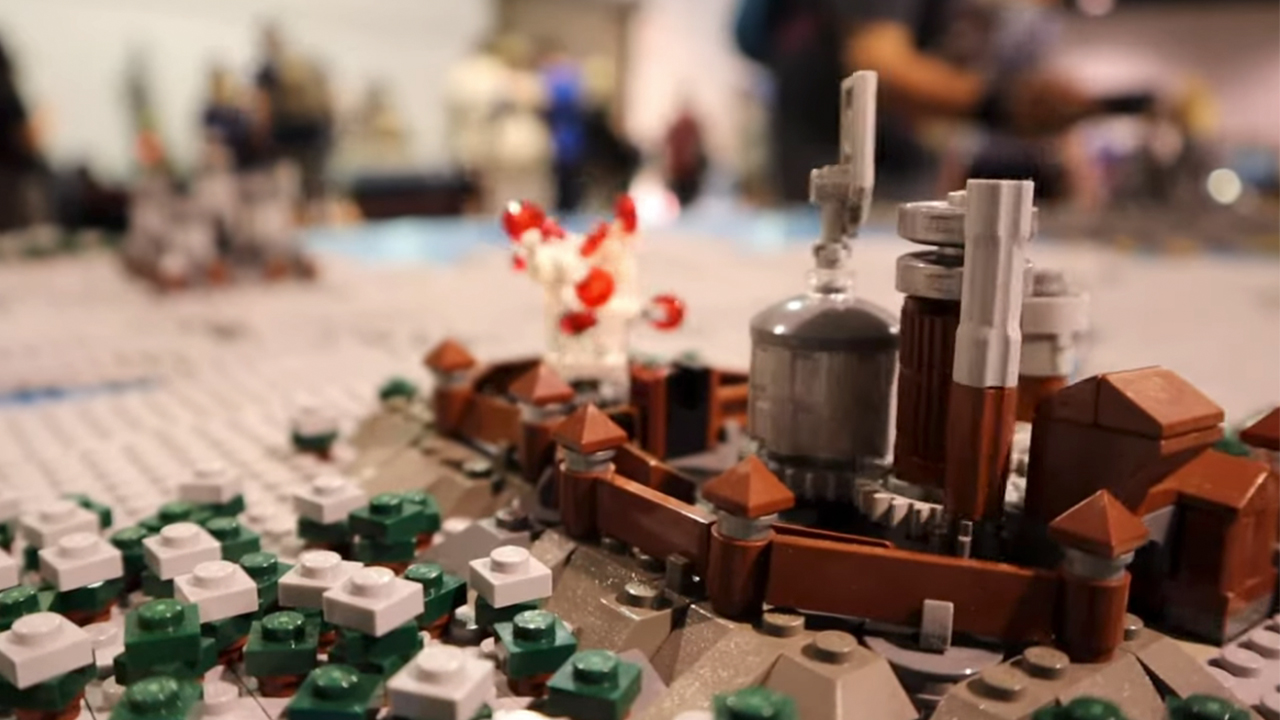Sequel De-Resolution: Why Tron: Legacy Isn't As Good As TRON
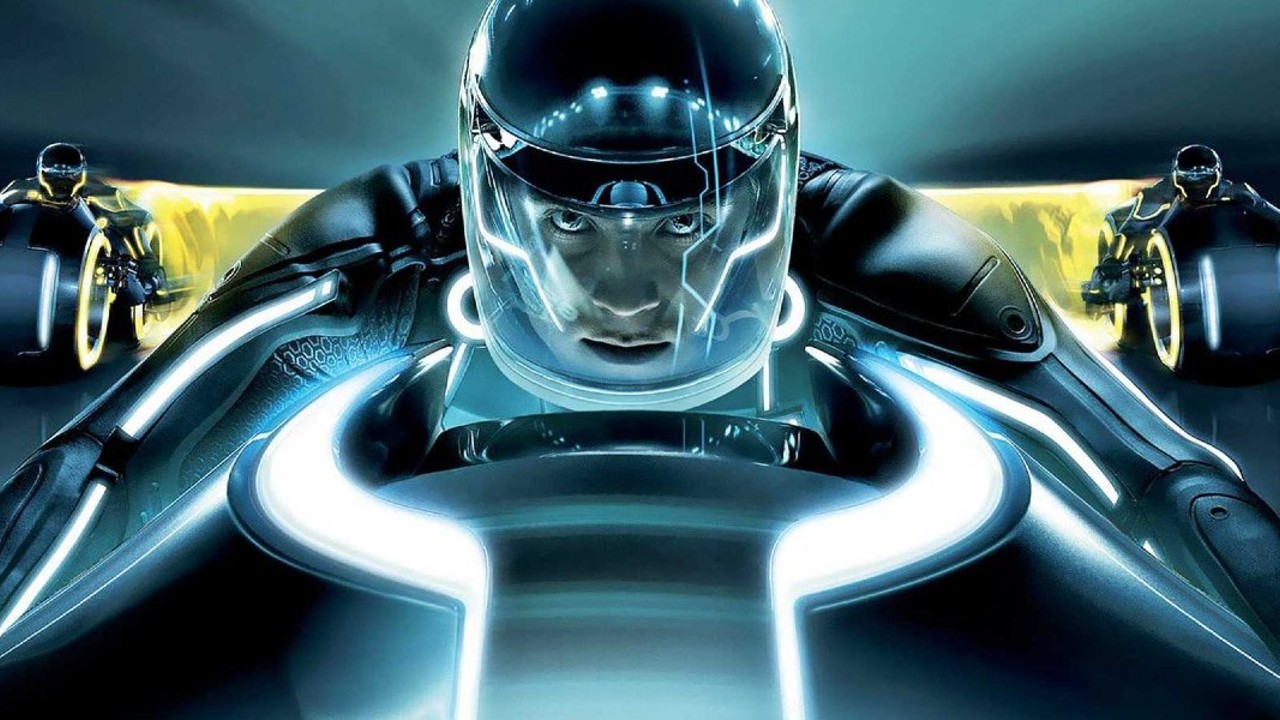
Before you read in any further know this: Tron: Legacy is a lot of fun. It's worth seeing, especially in the theater, where the movie's unique brand of special effects and Daft Punk's incredible soundtrack can really lift you out of your seat and transport you somewhere else. If you're a fan of the original TRON you'll enjoy it and you should definitely see it, but you might also be a little disappointed.
The thing is, even though Tron: Legacy has two decades worth of technological advancements on its side, TRON is clearly the better movie. The differences between the two films are vast, and while Legacy is definitely a sequel, it's a sequel by way of a very different mindset from the one behind the making of the original film. Technological prowess aside, Tron: Legacy is not nearly the movie TRON was, and here's my attempt to explain why the sequel, for all its merits, just doesn't measure up.
SPOILER WARNING: The following discussion contains heavy Tron: Legacy spoilers and should not be read until after you've seen Tron: Legacy. Read no further until you've seen the sequel.
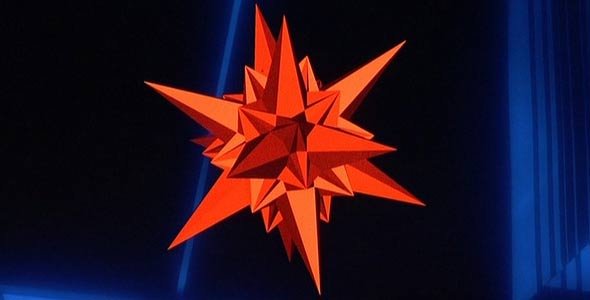
Computer Connections
One of the really cool things about the original TRON was the way it felt so much like it might actually be a world inside your computer. It wasn't just some random place with a bunch of lights, it went out of its way to connect itself to our world through technology. Characters talked about their users, the people Flynn meets tell him they're compound interest programs and other recognizable computer software fixtures. Clu has a sidekick named Bit, and there's a direct correlation between the games played by our heroes and video games played in the real world at the time. The world of TRON is definitively the world of the computer sitting on your desk. In Tron: Legacy, it's not.
Early on Tron: Legacy tells us this world is inside a computer, but after it tell us that it just sort of forgets about it and never really does anything with that notion. Sam Flynn never runs into a character named Quicktime, there's not a tower were programs go to get instructions from their users. The world of Tron: Legacy seems to have no correlation whatsoever to the information flowing in our PCs. Even visually the film sort of abandons this notion. In Tron when programs derezzed they did so by dissolving in a fading cloud of energy. In Legacy they break like fine china, shattering across the floor like someone just dropped a plate. Sure everything lights up, but it's not because they're in a computer.
There's no connection to the real world at all really, let alone computers. If these characters are in a computer, would they really have contacted the outside world using an outdated pager? Hey we have this thing called the internet… but apparently these computer programs don't seem to know about Skype at all. There's really nothing in this movie, other than some narration by Jeff Bridges which tells you its so, that would make you think you're in a computer watching programs and information given physical form. Tron: Legacy could have had a lot more fun with this premise than it does.
Your Daily Blend of Entertainment News
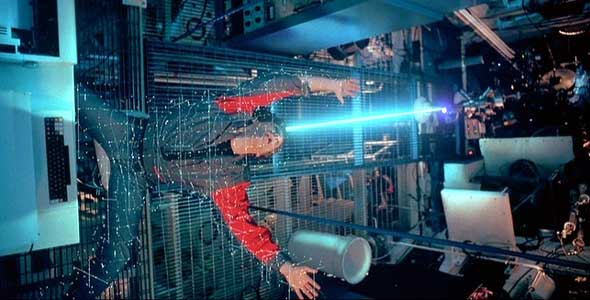
World Building
While we're on the subject, the world of Tron: Legacy doesn't really feel like it's anywhere at all. When Sam Flynn is sucked into the computer, it doesn't actually seem like he's gone anywhere. There's no sense of the journey. Part of the problem is the sequel's inexplicable decision to skip right over showing us just how Sam gets into the computer in the first place. In the original Tron there's that fantastic, iconic sequence in which Jeff Bridges body is literally digitized on screen, his body dismantled by a laser one piece at a time. Then we watch as his consciousness goes spinning and whirling through wires and connections as strange shapes flash past the screen and descend in to the computer. Sam's journey? One second he's sitting in his father's office, the next second he's in the computer world. It all just sort of happens.
Once Sam Flynn is in the computer world it doesn't really seem like a world. It's just a few isolated set pieces. Tron took its characters on a lengthy journey across a computer landscape. Sam, well he's just sort of in one place and then he's in another. It's not very populated. The other characters he encounter, outside of the film's handful of main characters, don't really have a personality or place in the film. The first programs he meets don't even talk to him. Contrast that with the original movie, in which our introduction to the programs of the computer world involves a conversation between imprisoned programs, discussing their fear of the games and the problems of the system in which they've been trapped. Tron: Legacy? Sam gets tied up next to a guy with who sits there rocking back and forth repeating “games games games games” over and over and over again until everyone's so bored with him they stop listening and he jumps off a cliff.
They've changed the nature of the computer world too. In the original movie they called it the “system” and the place Kevin Flynn ended up in was the world of computers as a whole, everyone's computer connected together creating a civilization right under our noses. Think of it like a primitive internet, In the new movie, they've stopped calling it the “system” and have started calling it the “grid”. In the original movie the “grid” was just a small part of the system where programs were forced to play games. They never come right out and say it in Legacy but you get the sense that this whole thing is taking place in some sort of closed environment, which has nothing to do with anything else, and definitely has nothing to do with anything going on inside your personal computer. Flynn doesn't even know what Wi-Fi is. It's a world without much in it, there's no sense of space, or of culture or any real notion of the journey. There's no sense of scale, or size or distance. Sam's simply here, and then he's somewhere else which is a lot like here, but looks cooler and has more neon in it. As a result the movie never really feels epic, you never have that sense of adventure you get when someone's on a journey through a fully realized, far away land. It looks great and in certain moments it's incredibly exciting, but that epic feel of the original? Almost entirely absent.
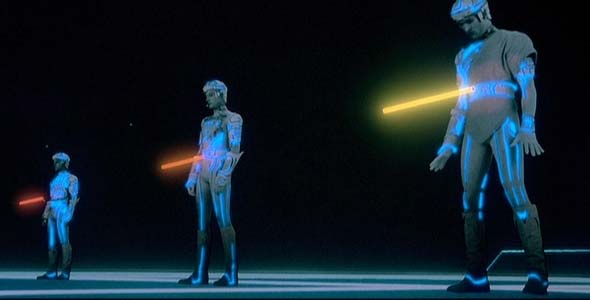
Creativity Is King
While it's true that Tron: Legacy is being widely praised by even the most hard-bitten cynics for its visual creativity, you have to wonder what TRON director Steven Lisberger might have done if he'd had even half of the special effects tools at his disposal that Tron: Legacy director Joseph Kosinski does. While Kosinski's movie is wildly creative in some of the broader visual strokes, it's not exactly detail oriented and ends up being wildly lazy in others.
The thing about the original Tron is that literally every frame of the film is filled with something going on. Everything lights up with energy and power, every wall, every inch of available space pulses and glows with the energy of the computer world. If someone drinks something, even the water lights up and glows. It's energy after all, the film is keenly aware of where it is and takes every opportunity to make the most of that. Tron: Legacy, for all its eye-popping slickness, doesn't always do that.
Instead when it's not concerned with the big picture, much of the time Tron: Legacy settles for simply copy/pasting elements from the real world into its world, and even worse, sometimes it simply settles for being ordinary. Consider for a moment Tron: Legacy's vehicles. In the original nearly everything they came up with was something you'd never seen before. The sequel, intent on having a few ideas of its own, tries to add new vehicles to the universe and what it comes up with are airplanes. That's really the best they could do. Light-up airplanes. There's nothing special about them, really. Just airplanes. Not bizarre recognizers which destroy their enemies by stomping them or a light sail which rips across vast distances on a beam of light. Just airplanes.
Mostly though, it's a problem of paying attention to the little details. When Clu makes Castor a drink behind the bar, what he hands him is literally just a drink with an umbrella in it. It isn't energy or light or anything even remotely creative. Castor just drinks a cocktail. The power sticks programs use to digitize vehicles like lightcycles are just sticks. There's nothing special about them. They don't glow, they don't pulse with energy. They're just flat black sticks people take out of their pocket and pull apart. Those same sticks in the original film glowed and floated up into the user's hands before digitizing a vehicle. It was awesome. Somehow those devices have gotten more boring in the past twenty years, even though the technology to make them look cool has gotten easier to do. Or take a Tron: Legacy scene in which Kevin Flynn gives Sam a vial of liquid to restore Quorra's health. Is it some sort of power booster? A special concoction of computer code which pulses and glows in Sam's hand? Nope. It's just a standard, flat black container which, I guess, contains your generic run of the mill drinking water. He might as well have given her a Dasani.
Much of the time Legacy doesn't seem to understand the world it's set in and as a consequence doesn't take advantage of what that world is. The doors in Flynn's house look like they were borrowed from a hotel and have obvious hinges on them. The control panels in lightcycles use generic speedometers. But it's more than just occasional visual laziness, it's a problem which permeates the entire film. Why bother to tell us that Flynn's classic lightcycle is still the fastest on the grid if you're just going to have Sam randomly hand it over to a homeless person and forget about it? The movie's villains are basically Nazis and as a weapon they use your standard, generic, definitely not giant-sized army of goons. This is a franchise which started by having its heroes battle a spinning disembodied head and his minion, whom he literally turns into a giant when threatened. But the best Tron: Legacy could do was to give us a computerized Hitler. The thing is, Tron: Legacy's best ideas are almost all TRON's ideas. The lightcycles are insanely fun. The disc battles are cool. But when asked to come up with ideas of it its own, the sequel doesn't seem to have any and in the process of trying to tweak TRON's already good ideas, far too often it ends up somehow diminishing them.
The great news about all of these problems is that, if there's a sequel, most of the things director Joseph Kosinski's sequel did wrong can be easily fixed. They haven't painted themselves into a corner here. Despite its missteps Tron: Legacy is good and buried somewhere just below the surface of this sequel, is the mythology and creativity it mostly ignored. The building blocks to create something truly great are in there, somewhere. If there's a next time for this franchise, then they have only to reach out and use them.
For an even closer look at the original TRON go here.
What do you think? Does Tron: Legacy live up to the original, groundbreaking, 1982 TRON? Look past the outdated special effects and share your thoughts in the comments section below.

